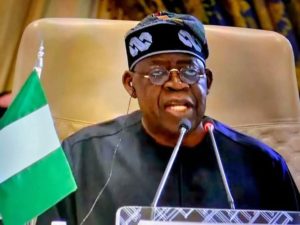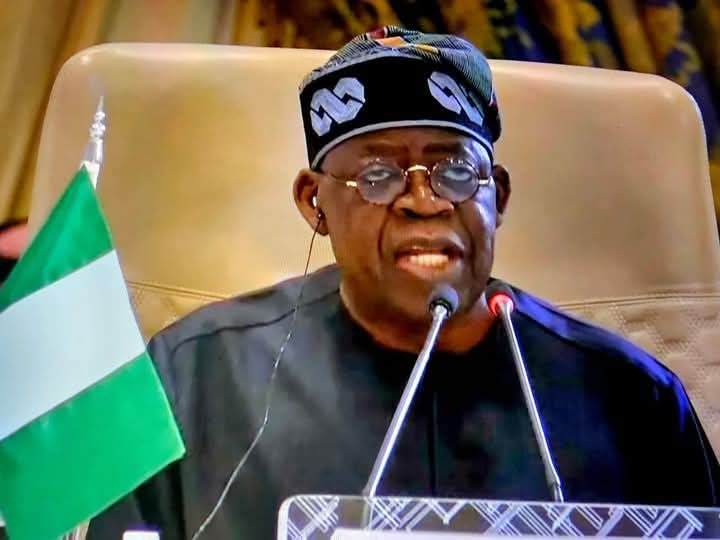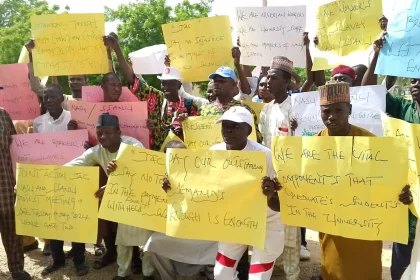
President Bola Ahmed Tinubu has announced a N4.52 trillion increase in the 2025 budget, directing the additional funds toward critical sectors such as solid minerals, agriculture, infrastructure, and military modernization. The move signals his administration’s commitment to economic diversification, national security, and inclusive growth at a time when Nigeria faces pressing developmental challenges.
A breakdown of the newly allocated funds highlights key areas targeted for transformation. The solid minerals sector will receive N1 trillion to unlock Nigeria’s vast but underutilized mineral resources, offering an alternative revenue stream to reduce dependence on oil. The Bank of Agriculture is set to be recapitalized with N1.5 trillion, aimed at empowering smallholder farmers, ensuring food security, and fostering agribusiness growth.
To strengthen local manufacturing and support small and medium enterprises, the Bank of Industry will receive N500 billion, a move designed to drive industrial growth and reduce Nigeria’s reliance on imported goods.
Another N1.5 trillion has been allocated for critical infrastructure projects under the RHID Fund, with the goal of improving national development. Transportation infrastructure, covering both road and rail, will receive N700 billion, with N300 billion dedicated to road rehabilitation and N400 billion for light rail networks in urban centers. The government has also set aside N50 billion to improve infrastructure in border communities, an effort expected to enhance living conditions, boost security, and support cross-border trade.
Military funding has been a significant component of the budget increase. The government will invest N250 billion in modern housing and expanded accommodation for military personnel, ensuring better living conditions that contribute to operational readiness. Additionally, N120 billion has been allocated to upgrade Nigeria’s military aviation capabilities, enhancing the country’s ability to respond to security threats.
In a further push for food security, N380 billion has been set aside for irrigation development to facilitate year-round agricultural production, ensuring a stable water supply for farming communities.
President Tinubu emphasized that the budget increase reflects his administration’s broader vision for Nigeria’s future, balancing economic growth with security and infrastructural development. He stated that the country’s armed forces would continue to receive necessary investments to end terrorism and safeguard national stability, reinforcing the government’s commitment to protecting the lives and dignity of Nigerians.
He also underscored the importance of modernizing Nigeria’s transport infrastructure, which will reduce costs, improve connectivity, and support economic activities nationwide.
The budget increase has drawn praise from analysts who believe it has the potential to drive economic growth, create jobs, and strengthen national security. The significant investments in agriculture and industry are expected to reduce unemployment, boost local production, and make Nigeria more self-sufficient.
Experts also highlight the importance of the N1 trillion allocation to the solid minerals sector, arguing that if managed properly, the investment could position Nigeria as a leading player in global mineral exports.
Despite the optimism, concerns remain over implementation. Corruption, mismanagement, and bureaucratic inefficiencies have historically hampered the success of government projects. Economists caution that without strict oversight and accountability, the ambitious spending plan may fail to deliver meaningful results. Questions have also been raised about how the government intends to finance the budget increase without worsening Nigeria’s debt burden.
While Tinubu’s administration has expressed confidence in its ability to generate revenue through improved tax collection and non-oil earnings, financial experts warn that reckless borrowing could offset the intended benefits of the increased spending.
As Nigeria moves forward with the 2025 budget, its success will depend on the government’s ability to translate these allocations into tangible improvements in people’s lives. If well-implemented, the additional N4.52 trillion could mark a defining moment in Tinubu’s presidency, laying the foundation for a more resilient economy, enhanced security, and a more prosperous future for all Nigerians.
However, without careful execution, transparency, and financial prudence, the ambitious plan risks becoming yet another unfulfilled promise in Nigeria’s history of budgetary allocations.




